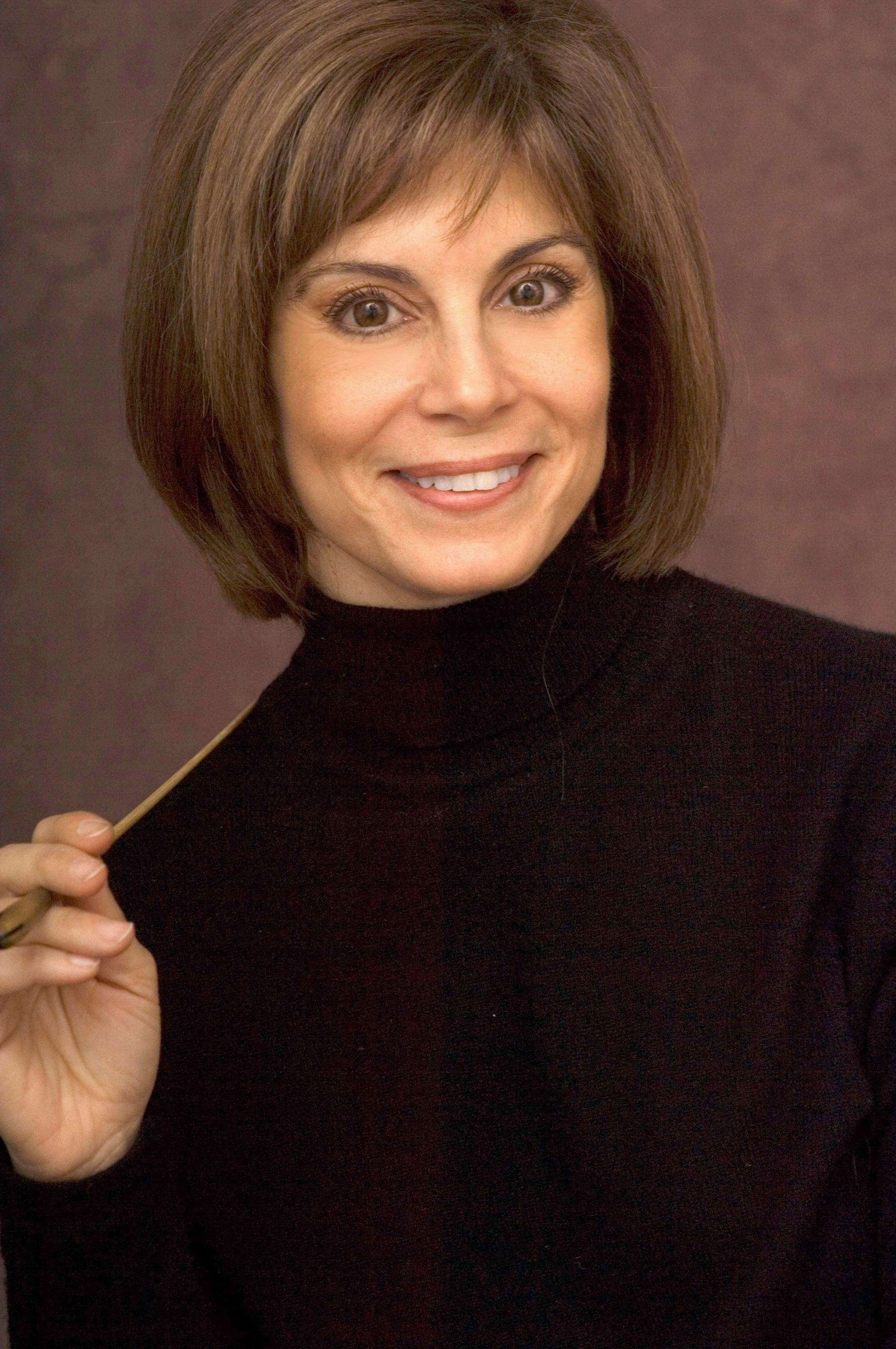|
Back
Two Russians, Rare and Well Done New York
Isaac Stern Auditorium, Carnegie Hall
05/08/2013 - & May 3, 4, 2013 (Buffalo)
“Spring for Music”
Giya Kancheli: Life Without Christmas: “Morning Prayers”
Reinhold Glière: Symphony No. 3, “Ilya Muromets”, Opus 42
The Buffalo Philharmonic Orchestra, JoAnn Falletta (Conductor)

J. Falletta (© Mark Dellas)
Last night’s concert by the Buffalo Philharmonic Orchestra (BPO) commenced with a bizarre incongruity. Traditionally (that is, the three-year tradition from Carnegie Hall’s week of visiting orchestras), natives of the visiting cities living in New York or New Jersey make a beeline to Carnegie Hall not only to show the flag (or in these cases, a kind of bandana) but to roar for their compatriots. And nobody could roar louder, more enthusiastically or with greater passion than the crowds of Buffaloians (the mass of Buffaloists? The herds of Buffalos?) who packed the Hall.
Whatever they may have expected–a Bernstein songfest, a rousing Rossini overture, a Gershwin concerto–their ecstatic cries were immediately muffled when that outstanding conductor JoAnn Falletta mounted the dais and launched into a rare work which excelled in solitude, quietness, and awestruck ecclesiastical mourning. Yet Russian composer Giya Kancheli, while rarefied, is not difficult with ears kept open. And the audience, after the mysterious voice of a boy singer (pre-taped, as the composer wanted), relaxed enough to take in what was given.
The Buffalo Philharmonic Orchestra does not have a hoary old history, born a mere 78 years ago But its origin, as one of Franklin Delano Roosevelt’s “stimulous projects” for the Depression, as well as conductors like the late Lukas Foss have given it a firm cachet amongst America’s fine orchestras.
Recently, two additions have given it even more brunt. Conductor JoAnn Falletta, a native of Queens, had gone north a few years ago, and she has turned out to be not only a stalwart of Buffalo but a terrific, energetic leader. Add to that their Concertmaster, Michael Ludwig, a fine soloist in his own right, who, like the BPO, is a recording artist with Naxos, and obviously keeps the orchestra playing well.
They needed all they could get with the Kanchelli, for this could be a conductor’s nightmare. The tempo is mainly very very slow, with a few sudden flourishes, but the nuances, colors and slightest changes of tempo can be difficult to unify.
Ms. Falletta steered the BPO past those stumbling blocks to a great degree. Morning Prayers (from the elegantly titled Life Without Christmas) is dense and interesting in sounds, but to balance out a tempo which comes close to lugubrious is a tough job, and she did it.
The second work, that complete version of the 90-minute Third Symphony by Reinhold Glière, was more than a rarity because it was uncut. (Stokowski had made a 30-minute arrangement so 60 years ago). But because Glière is rarely played in America. The ConcertoNet archives lists only a single New York performance of the Russian composer in the past six or seven years, this a single movement from his Concerto for Soprano.
Truth be told, Glière, Russian-born from a Jewish Belgium family, was quite happy whoring himself for Josef Stalin, producing such priceless trivia as March For the Mongolian People’s Democratic Assembly.
The work last night, though, is obviously a masterpiece of a different sort. It is totally Romantic in form, though written in 1911. It can be desolate, forbidding at times, it can be joyous, and the finale, with its Russian religious anthems, its fierce brass calls (and what a brass section, the BPO has!), and its funereal ending, make it a triumphant work.
I confess that for reasons beyond my ken, my parents had given me a recording when I was a wee child, so my introduction to Russian music was not Rimsky or Mussorgsky but Glière. Thus, my love for the work, which I had never heard live before last night, was unfettered.
And Ms Falletta again did herself proud. The Glière, while new to Carnegie Hall, was hardly challenging like the previous Kanchelli, for it is a work of superficial emotive power. Had Anton Bruckner grown up in Kiev, he might have produced something like this. The battle scene was exciting (Glière’s student Sergei Prokofiev, might have had this for the model for his Alexander Nevsky ice-battle), the horns and trombones played their solos without a single glitch, and the entire work had a power which no recording can ever have.
Good news, though. The BPO is about to record the Glière Symphony for Naxos Records. If they can summon up half the excitement that they produced in last night’s live performance, methinks it can be another triumph for this splendid group.
Harry Rolnick
|